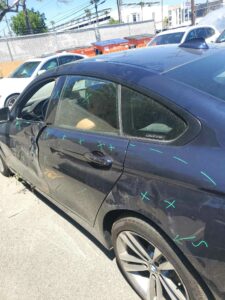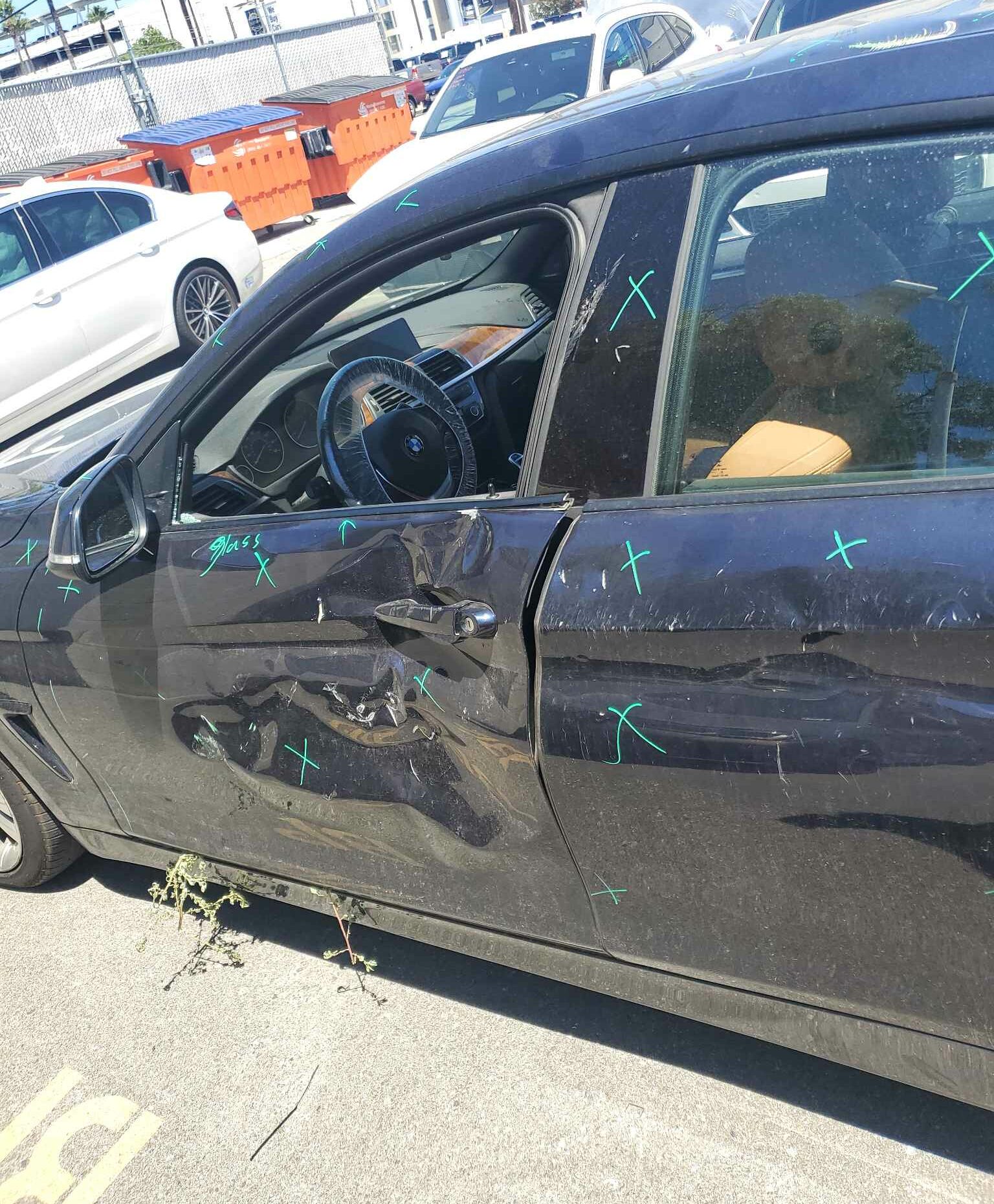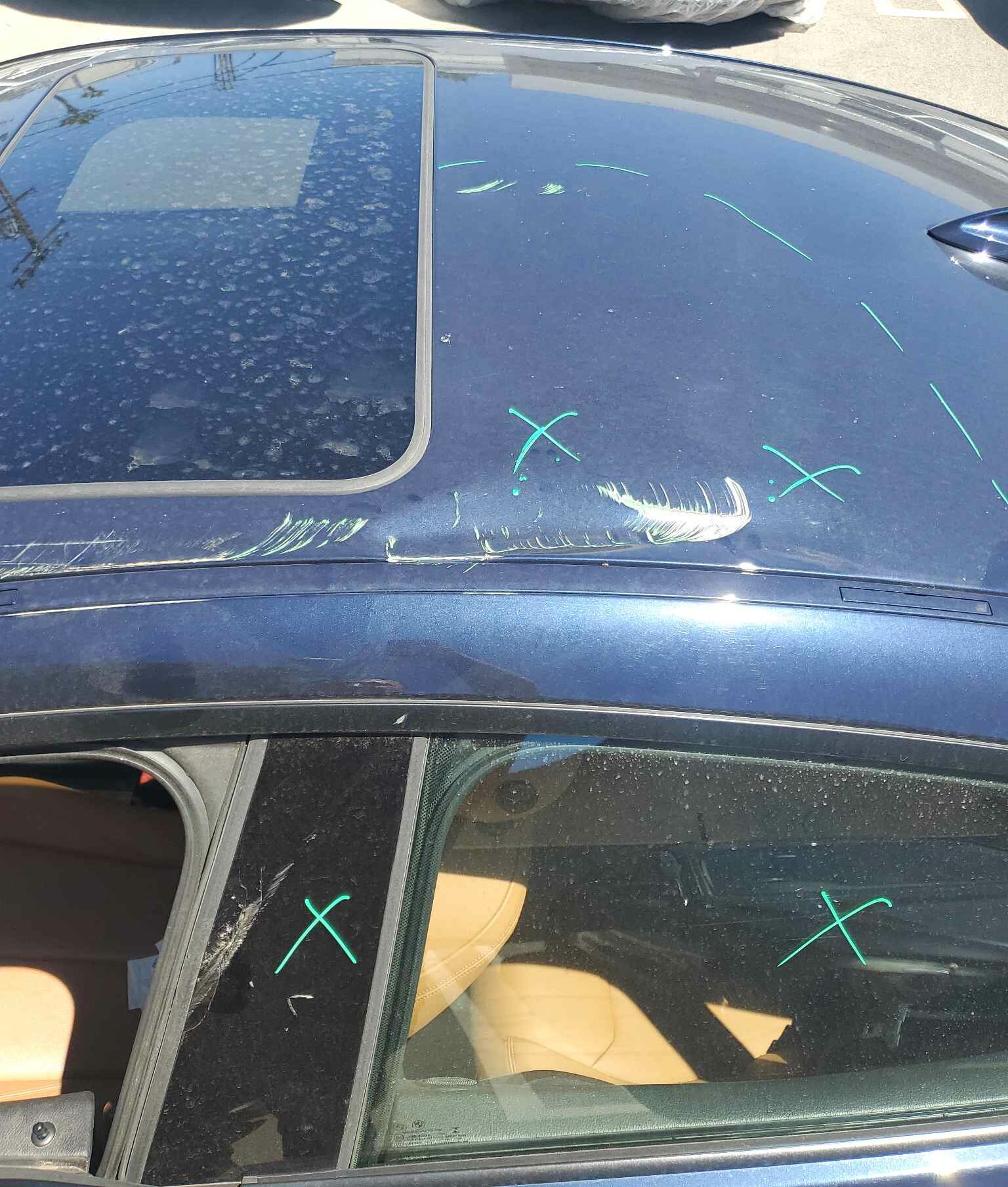
Proactive approach in determining totals could save time & money
By onBusiness Practices | Collision Repair
In a world of ever-increasing backlogs, work in process, and mounting costs from parts, materials, and operational requirements, well-informed decisions on obvious vehicle outcomes can help eliminate administrative waste and cost from an already overburdened claims and repair ecosystem.
Unfortunately, when obvious visual determinations aren’t heeded, the result adds unnecessary strain to the system as depicted by a Repairer Driven News subscriber.
One challenge centers often face is handling the storage of vehicles when their lots are already packed.
A customer of Andrew Batenhorst’s was told their 2018 BMW that was involved in a semi-truck car hauler crash was repairable. The truck had flipped on its side during transport and all of the vehicles were heavily damaged, he said. The customer began working on a claim with the commercial arm of Progressive months before bringing the car to Batenhorst.
Even though the damage clearly presented as a total loss when Batenhorst reviewed photos, Progressive later dropped the car off for repairs.
“The roof could [need to] be replaced, it needed doors and a quarter panel and probably suspension parts,” he said. “I think our preliminary quote came in over $30,000 with just visually assessing the car once it got here, let alone we didn’t even take a single panel off of the vehicle.”
He added that the carrier heavily underwrote the car and included using recycled parts in its estimate. As a BMW-certified repair center, Pacific BMW can’t do that. Progressive wrote $6,237.95, which included nearly 95 hours of body, refinish, glass, and mechanical labor, according to the estimate.
Batenhorst was proactive in his approach to let Progressive know they didn’t have room to store non-repairable vehicles on their lot and urged them to total the vehicle. Despite that, after three weeks with no response, a flatbed showed up with no notice and unloaded it at the center.
“We spoke to the customer and advised him we’ll prepare a visual quote and send it over to Progressive,” Batenhorst said. “It took another four weeks for Progressive to determine the car was a total loss and it racked up $10,000 in storage charges. It turns out Progressive forgot the car was here even though they had transferred the title over to themselves.
“Had the car been properly evaluated, this could have saved a lot of time and money but when we propose legitimate repair operations that need to be performed on a repair, we are not being competitive. In the end, a simple conversation that was ignored ended up costing them $10,000.”
Progressive initially only wanted to pay $3,500 for four weeks of storage and 10-12 hours of labor that Pacific BMW had spent on the claim between phone calls, texts, emails, assessing the damage, and creating the estimate. After negotiating, as a courtesy, Batenhorst agreed to $7,500.
“I wanted to show that we tried; I’m still willing to work with you,” he said. “But don’t label us as the bad guy because you wasted this money for no reason.
“Once we submitted our estimate, they didn’t even challenge what we asked for. I think they realized that pretty quickly this car needs to be totaled.”
Pacific BMW’s estimate totaled $30,000.
“I know some insurance companies would say, ‘Well, if the AI technology could have maybe done a better job of assessing damage up front…’ But I think there’s an underlying issue of there’s still a human interaction that needs to take place to evaluate some of these decisions.
“And if adjusters don’t have the bandwidth to look at this on a bigger picture and say, ‘Is this really the best thing to do for this customer in this claim?’ then it will lead to a poor experience for the customer that may ultimately cost the insurer more money spent for the claim and an increased risk of losing a policyholder.”
The customer’s frustration only grew throughout the process, with the repair center and Progressive, because he didn’t know what else he could do.
“It’s not just a Progressive problem but… there’s operations that are necessary and not included per the labor guide. We present those to adjusters and we believe we are charging fairly for these labor operations. Adjusters don’t want to pay for it and the irony here is that the dollar amount of paying fairly for repair operations and parts needed and materials that are needed pales in comparison to the $10,000 they just spent literally for nothing for a car to sit here… I always use it as a leveraging point when I negotiate to say, ‘Hey, I’m not here to spend your money needlessly but fairly compensate me for the repairs that I’m doing.'”
Batenhorst’s story is reminiscent of one shared by Gary Wano, owner of GW & Son Auto Body in Oklahoma City, during a Collision Industry Conference (CIC) meeting earlier this year. Wano had been working a claim on behalf of his customer with a carrier, which he didn’t name, for nearly a year.
The carrier gave an estimate of $1,960 compared to Wano’s preliminary estimate before teardown of $16,600, which he said he backed up with all the necessary documentation, including OEM repair procedures that must be followed to complete a safe and proper repair. The response he got was that they don’t pay for so-called unnecessary parts just because the OEM wants to sell more of them, Wano said.
The customer agreed to bring their vehicle back to Wano to be dismantled so that he could prove to the insurance company that the parts he included in his estimate needed to be replaced.
“How aggravating is that to that client? …I wanted to let that client know that we’re there for them,” Wano said in April. “We’re trying, we did everything we could, and now this car is immobile in my store because the carrier, at that point in time, did not accept all of the documentation, all of the research, that was in place.”
Wano was brought up to share his story as part of a panel discussion between collision repair, insurance, appraisal, and rental professionals. They agreed that “fundamental change” has to happen within the collision repair and insurance sectors to move away from the reliance on supplements because they degrade customer trust and unnecessarily delay the repair process.
Images
Damages to a 2018 BMW that was brought to Pacific BMW in California are shown. All images courtesy of Pacific BMW.


